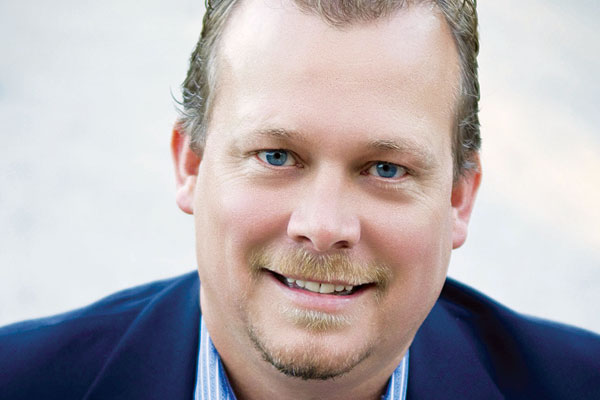Todd Stewart: All Wired Up

NAME: Todd Stewart
TITLE: Vice president supply chain, since 2008
COMPANY: WireCo WorldGroup, Kansas City, Mo.
PREVIOUS EXPERIENCE: Merchandise manager, JC Penney; product manager, then manager of distribution and customer service, then VP of distribution, transportation and customer service, WireCo WorldGroup
EDUCATION: Missouri Western State University, BSBA in marketing and management, 1992; Benedictine College, Executive MBA, 2001
WireCo WorldGroup makes wire as fine as a human hair and wire rope as thick as a human bicep. As WireCo’s vice president of supply chain, Todd Stewart delivers those wire products to customers around the world for use in products as diverse as spring mattresses, mining equipment, and the Oakland Bay Bridge.
Since he joined Kansas City-based WireCo 11 years ago, Stewart has worked in just about every phase of the supply chain. Today, he focuses on globalizing logistics and transportation operations in a business that has rapidly expanded its geographic footprint through mergers and acquisitions. WireCo’s customers include original equipment manufacturers and distributors that serve customers in construction, heavy industry, mining, and oil and gas exploration.
“Our biggest supply chain challenges are keeping up with our sales organization’s accelerated globalization, and getting our product to market,” Stewart says.
As WireCo brings local sales executives on board, demand for its products is booming in countries such as India, Russia, and China. Stewart’s team needs to calculate freight rates so they can quote customers in these markets.
“Part of the challenge is that we have to provide transportation rates into areas we’ve never shipped to before,” Stewart says. “And we have to do it quickly.” That means hustling to learn what transportation options the new location offers, and negotiating with new carriers.
Finding strategic partners that understand WireCo’s business and can handle its product also is a challenge. Much of the material the company ships into its factories, and the product it ships to customers, fits into a standard trailer or intermodal container. But the product doesn’t always fit neatly into cartons, and some shipments are just hard to handle. “It’s not as easy as calling a local trucker when you’re moving a 30-ton reel of wire rope from a manufacturing plant in Missouri to a mining site in the middle of Zambia, Africa,” he says.
WireCo manufactures its product in eight U.S. plants, two in Mexico, one in Germany, and one in China. Most of the product made in the United States reaches customers through a network of seven regional distribution centers.
For the past 15 years, most of that domestic freight has traveled by truck. But WireCo recently started using rail again, which has dramatically reduced its domestic transport costs and carbon footprint. “One boxcar on rail costs 50 percent less to ship and takes five trucks off the highways,” Stewart says.
Rail looked like a poor choice in the past because the service was less reliable and efficient than highway transportation. “But now we’re looking at ways to plan more proactively so that we can utilize rail,” Stewart says. With more lead time, the company can take better advantage of rail services.
Efforts like that are getting a lot more emphasis at WireCo these days. “I continually look for cost reductions while maintaining or improving service and delivery to customers,” Stewart says.
The Big Questions
What do you do when you’re not at work?
Having two grade school-aged kids involved in sports, music, and dance keep me and my wife constantly on the go. I am a member of the Ancient Order of Hibernians, an Irish Catholic group that raises money for education and the local food bank. My wife and I are big supporters of the arts in our community and volunteer whenever possible.
Ideal dinner companion?
Warren Buffet. I am sure he has millions of stories to tell, and maybe I could get some good investment advice. I would also ask him about donating to my community arts foundation.
What’s in your backpack?
The essentials for business travel: passport, business cards, ear plugs, and a video cam to conference into business meetings and connect with my family while I’m away.
If you didn’t work in supply chain management, what would be your dream job?
Managing a resort in an exotic location, or running a bed and breakfast in a small historical town.
